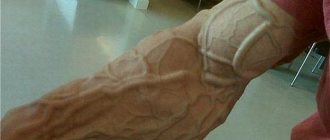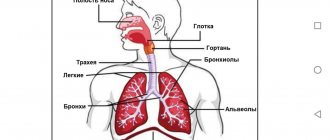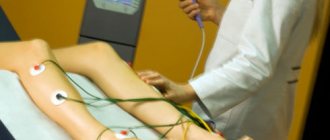Myths and truth: arterial hypertension
May 25, 2021
Arterial hypertension is one of the most common diseases in the modern world. And therefore, it is not surprising that many rumors arise around this disease. Is it necessary to treat high blood pressure and is it possible to normalize it once and for all? Is it enough to take pills or will you have to change your lifestyle?
Hypertension is an insidious disease. It doesn’t seem to hurt anything, but it can shorten your life by 10-20 years. Headache, increased irritability and nausea bother most hypertensive patients only in the initial stages of the disease. Further, poor health occurs only during hypertensive crises. And since nothing hurts, they don’t pay attention to hypertension. Only 40% of hypertensive patients know about their disease. Of these, 40% take medications. 40% of those who take medications take them correctly and in the right doses, and every year there are more and more hypertensive patients.
As with any highly common disease, many myths have arisen about arterial hypertension.
Myth 1.
Arterial hypertension can be cured
Hypertension is a chronic disease that cannot be completely cured. Therefore, it is impossible to forget about regularly visiting a doctor and taking medications, since arterial hypertension can lead to the risk of stroke, heart attack and kidney damage. This disease is also a common cause of death in the world.
Myth 2.
If your blood pressure is normal, you do not need to take medicine
Treatment of arterial hypertension involves lifelong regular use of drugs that are selected individually and work in combination. Temporary improvement without medication will quickly disappear. In addition, it is precisely skipping antihypertensive medications that leads to the risk of a hypertensive crisis.
Myth 3.
Arterial hypertension will be indicated by symptoms
The insidiousness of high blood pressure lies precisely in maintaining good health for a long time. There are signs such as sudden deterioration of vision, decreased sensitivity in the extremities, constant shortness of breath, but these are not symptoms of hypertension, but signal the development of complications.
Myth 4.
If the blood pressure medication does not help immediately, you need to change it
It is necessary to take into account the individual characteristics of the body, because the reaction to the same drug in different people can be completely different. Therefore, drugs and dosage are usually selected 2-3 times. The patient is prescribed a drug, he takes it and at the same time keeps a diary of “pressure, pulse, well-being.” After 2 weeks, a second consultation is usually scheduled to adjust the dose, if necessary, or add drugs from another group.
Myth 5
. If your blood pressure is constantly elevated, you can say goodbye to a normal life. Therefore, it is better not to know about him any longer
If you follow your doctor's recommendations, it is not difficult to avoid complications, lead an active lifestyle and feel good even with high blood pressure. If you give up on the disease, hypertension can lead to severe, sometimes fatal complications. In addition, increased pressure may indicate very serious diseases of the nervous and endocrine systems or indicate improper functioning of the kidneys.
Tags:
- Hypertension
- Arterial pressure
To leave a comment you must be an authorized user
Research
According to the Russian study “The Age of Hypertension,” the number of people suffering from hypertension is growing. In 2021, the prevalence of arterial hypertension in Russia, that is, established stable high blood pressure, was 43.3% (hypertension and arterial hypertension are correlated as a disease and a symptom). Hypertension is a major risk factor for stroke or heart attack. Heart attacks and strokes primarily affect older people, but can also happen at a young age.
As a rule, blood pressure control is achieved with the help of medications, but there is an alternative. An international team of scientists analyzed data from 391 previous studies and came to the conclusion that exercise produces an effect similar to that obtained from the use of antihypertensive drugs, with the difference that the drugs can reduce blood pressure strongly and quickly. The results of exercise are more modest, but nonetheless consistent.
Another study conducted by a group of American scientists compared the effectiveness of exercise and pharmacotherapeutic interventions on visceral fat levels. Visceral fat forms around the internal organs and is not visually detectable. Excess visceral fat tissue can be very harmful and cause a variety of health problems, including hypertension. The study found that exercise led to a greater reduction in visceral fat than the use of pharmaceuticals.
Cause of hypertension
The main cause of hypertension and other cardiovascular diseases is atherosclerosis - that is, clogging of blood vessels with cholesterol deposits (plaques), narrowing of the lumen of blood vessels, impaired tone of the vascular wall and deterioration of blood circulation. Atherosclerotic plaques are deposits of excess cholesterol found in the blood. This excess cholesterol can be endogenous (produced by the body itself) or exogenous (comes from outside the body). In the first case, it is caused by excessive liver activity, in the second – by metabolic disorders.
Finally, the third main cause of high blood pressure may be kidney dysfunction.
Living with hypertension
If the disease progresses and it cannot be completely cured, accept the diagnosis and learn to live with it.
The lifestyle of a hypertensive person differs from that of a healthy person. What is he like? Ideally, a person suffering from hypertension must comply with a number of requirements:
- Switch to a different diet - a salt-free diet, a different method of cooking (food is boiled, stewed, steamed), give up tasty but unhealthy food, treat yourself not to sweets and smoked meats, but to fruits, vegetables, and nuts.
- Quit bad habits.
- Provide regular moderate physical activity.
- Engage in auto-training or use other available methods for relaxation and increase stress resistance (communication with pets, calm dancing, reading, cinema, music, hobbies, travel). Fundamentally reconsider your relationship with the outside world and with yourself.
- Control your weight.
- Monitor your blood pressure.
- Follow the doctor's recommendations, take prescribed medications in the prescribed dose according to a specific regimen.
- Many hypertensive patients are weather dependent, so monitor the weather conditions and take the necessary precautions - prepare in advance for possible hypertensive crises.
- Patients should not be overcooled; also avoid prolonged exposure to the sun.
- It is not recommended to change the climate suddenly.
- It is better to give up conquering the mountains and the depths of the ocean; a holiday at the Dead Sea would be an excellent alternative.
- Get enough sleep.
- Take care of a reasonable combination of work and rest.
- Monitor edema, and fight it when it first appears (use diuretics).
In addition, hypertensive patients should always have a special first aid kit on hand. Contents of medications in it: for relief of hypertensive crisis and daily use. Here is an approximate list of necessary medications that you carry with you:
- "Captopril", "Lisinopril", "Enalapril" - ACE inhibitors; during a crisis, place the tablet under the tongue and dissolve;
- “Metoprolol”, “Anaprilin”, “Atenolol” - beta-blockers; the crisis is relieved by intravenous injection;
- “Nifedipine” (under the tongue), “Verapamil” (intravenously) – vasodilators;
- "Furosemide" (intramuscular or intravenous for quick effect);
- “Valerian”, “Motherwort”, “Peony” - sedatives;
- “Baralgin”, “Pentalgin”, “Citramon” - analgesics;
- "Semax" - regulatory peptides (stabilize the functioning of the brain and the whole body, relieve the crisis).
You can live with hypertension for many years; a person gradually gets used to the prohibitions and restrictions, and following such rules is useful even for healthy people. Only early diagnosis and optimal lifestyle correction will stop the disease. To completely eliminate symptomatic hypertension, you may have to undergo surgery.
Manifestations of secondary hypertension
Since secondary hypertension is a syndrome of another disease, it shows itself somewhat differently. Symptoms of concomitant pathology join the usual signs of the disease. These include:
- kidney diseases (lower back pain, protein in urine, swelling);
- cardiovascular diseases (heart pain, arrhythmia, shortness of breath);
- disorders of the endocrine system (characteristic fullness occurs in the face and body, while the arms and legs are thin);
- diseases of the central nervous system (nausea, dizziness, loss of memory, coordination).
In addition to the signs of these diseases, specific indicators indicate secondary hypertension: persistent arterial hypertension, no result from the therapy used, panic attacks.
How to recover?
If hypertension develops as an independent disease (primary), medications will not be needed to successfully treat it at an early stage. How to overcome the disease? The most effective remedy is to remove all provoking factors from the patient’s life. In addition, blood pressure is normalized using traditional medicine and other alternative treatment methods.
Factors that exclude:
- errors in diet;
- lack of physical activity;
- increased stress on the psycho-emotional system;
- physical stress;
- consumption of alcoholic beverages and tobacco products.
There are situations when it is impossible to eliminate the provoking factor, or it is difficult to do so. This happens with the development of a special form of hypertension: drug-induced. In this case, high blood pressure occurs as a side effect of taking certain medications. It is advisable to remove such drugs or find an alternative to them, then hypertension will disappear by itself. If this cannot be done, the dosage and dosage regimen of the drug are reviewed; it may be worth taking a pause for some time.
What is hypertension?
High blood pressure is a symptom of a disease that is slowly destroying the body. If a person is diagnosed with hypertension, and he does not pay attention to its treatment, then with a high degree of probability, in such conditions, negative consequences, heart attack, stroke and others may appear. A distinctive feature of hypertension is that it is not always accompanied by characteristic symptoms with severe discomfort.
Many people simply do not know that they have high blood pressure, since there are no significant manifestations of this condition, and the person simply does not measure the readings. The pathology may not manifest itself for a long period of time, resulting in severe consequences.
Normal blood pressure readings are 120-130 (upper reading) to 80-89 (lower reading). If pressure measurements record values exceeding normal values over a long period of time, this indicates the presence of hypertension.
The danger of hypertension
Increased pressure over a long period of time has a destructive effect on blood vessels. As a result, their elasticity and resistance to overloads decreases. Blood circulation is impaired. This has a negative effect on the functioning of the brain, heart muscle, and kidneys. The likelihood of decreased vision increases, and eye diseases develop against this background. To avoid these problems, it is necessary to stabilize blood pressure readings. In this regard, a logical question arises: “ How to lower blood pressure?” For the most competent answers, you should consult a doctor in the cardiology department.
Advanced hypertension can cause the following conditions and diseases:
- Hypertensive crisis. A person experiences high blood pressure, accompanied by headaches, nausea and vomiting. Convulsions and clouding of consciousness may occur and may progress to a stroke. The problem can be solved with the help of medications that lower blood pressure;
- Stroke. Impaired blood circulation increases the likelihood of rupture of blood vessels in the brain, which leads to acute, sharp pain in the head. After this, sensitivity decreases, and swallowing function may be impaired. Next, half of the body is paralyzed. The consequences in most cases are irreversible;
- Myocardial infarction. The main reason is blockage of the cardiac artery, which leads to acute disruption of the myocardium. The affected part stops functioning and dies. A person experiences severe pain in the chest. Emergency medical attention is required, as there is a possibility of increased manifestations and death;
- Kidney failure. High blood pressure is often accompanied by kidney problems. The organs responsible for filtration cease to cope with their tasks, and the process of formation and excretion of urine is disrupted. The patient exhibits signs of intoxication: weakness and fatigue combined with high swelling;
- Heart failure. The heart ceases to perform its main function of pumping blood in the required volume. Negative consequences affect all tissues and organs, which manifests itself in a deficiency of nutrients and oxygen. A person develops weakness and fatigue;
- Eye damage. Not enough nutrients are supplied to the retina. Blood flow to the optic nerve deteriorates. Increased pressure can cause hemorrhage in the retina or lead to the development of vitreous detachment. In such conditions a person may lose his sight.
Our medical center (Rostov-on-Don) offers its clients a wide range of medical services, including the opportunity to visit a cardiologist.










